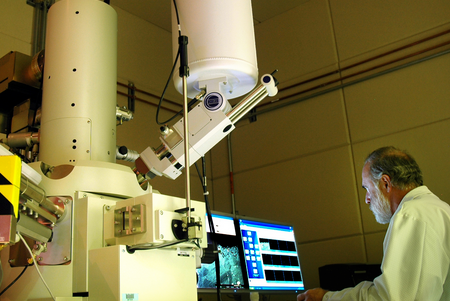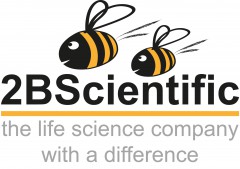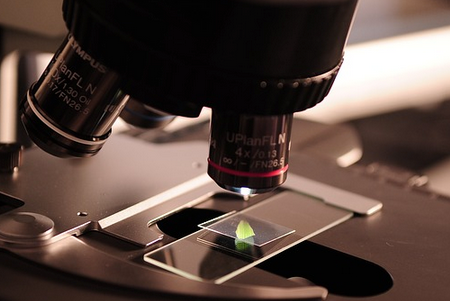
Research ethics is the application of strong ethical principles to the process of scientific research.
The adherence to ethical principles within a body of research ensures the authenticity, the fairness and the safety of the research by maintaining honest, objective and responsible research practices.
But what are ethical principles, and how do they ensure better scientific research?
Ethical standards
At its simplest, ethics is a term used to describe a moral code used for distinguishing between right and wrong, and the behaviour that results from this.
One of the most famous ethical codes is the Hippocratic Oath, taken by medical professionals to ensure ethical practice, but in reality ethics makes up an important part of our lives on a daily basis.
For the best part, we learn a comprehensive appreciation for ethics throughout our lives. In childhood we find ourselves faced with situations that force us to address for the first time what is right and wrong behaviour.
These lessons follow us throughout our lives, forming a benchmark against which we might gauge our actions and those of others, often without consciously knowing it.
Sometimes, however, we find ourselves coming into conflict over the ethics of an action or decision. This is known as an ethical dispute, and marks a moment when one person’s ethical understanding clashes with someone else’s.
Ethical disputes
Ethical disputes raise the issue of interpretation within the field of ethics.
Because we all lead different lives, each made up of wildly different experiences, people and lessons, it is unsurprising that our ethical interpretations vary.
One way of settling ethical disputes is to reference the law. Many societies have laws built around a core of ethics, with the end goal of maintaining a just, morally fair society.
It is worth noting, however, that the terms are not interchangeable. Not everything that is legal is ethical, while some illegal activities might well be.
Another way is to consider the context in which the ethics are being applied.
Ethics and science
Ethics plays an important role in scientific research for a number of reasons.
Ethics typically promotes honesty, furthering truthful research and accurate knowledge, while dissuading lies, falsifications and the manipulation of data.
This is of great importance to the scientific community, whose research findings almost always depend on the accuracy of data to corroborate hypotheses and predictions.
Ethical codes decree that researchers are accountable for the research they undertake. This helps to promote responsibility across bodies of research, while warning researchers away from cases of misconduct, human rights violations and unfair censorship.
An ethical code demonstrates strong moral concerns on the part of the researchers, creating a greater sense of trust and integrity surrounding a project or body of work.
This can lead to more practical benefits, such as increased public funding, or wider circulation across publications and websites.
These values of trust and accountability can also increase the cooperating strength of research, furthering key characteristics of collaborative work, for example joint authorship, copyright, mutual respect and moral fairness.
2BScientific
At 2BScientific, ethics matter. As a customer-facing business and a component of the science industry, we know the value a strong ethical code has in securing the trust of our customers.
This is why we only source reagents from the industry’s most reliable manufacturers, ensuring you get the ethically-produced, quality products that you need to make your research a success. Nobody does more for the customer.
Our code of ethics extends beyond the lab to include an awareness for wider environmental impacts, specifically the plight of the bumblebee and the pivotal role he plays as a pollinator in our ecosystem.
This ethic code translates into funding, which we offer the British Bee Keepers Association to help their research into the recent decline of the bees.
In a field that demands integrity, accuracy and responsible implementation, ethics play an important role in regulating the standards of research practices.
This regulation is crucial to the authenticity and accuracy of any research project; only by taking the time to consider the wider ethical implications of your research can you get the most from your work – and your results.
For more information about 2BScientific’s range of ethically-produced reagents, call us directly on +44 (0)1869 238033 or get in contact here.
 We offer a range of competitive discounts for bulk order purchases of all our products. Our suppliers also feature regular offers, which we are able to pass onto our customers.
We offer a range of competitive discounts for bulk order purchases of all our products. Our suppliers also feature regular offers, which we are able to pass onto our customers.
 From the 25th to the 31st October, the British Beekeepers Association (BBKA) is celebrating National Honey Week, designed to raise public awareness for the importance of bees and honey.
From the 25th to the 31st October, the British Beekeepers Association (BBKA) is celebrating National Honey Week, designed to raise public awareness for the importance of bees and honey.
 2BScientific is delighted to announce that it has recently signed a new distribution agreement with US reagents supplier Tonbo Biosciences.
2BScientific is delighted to announce that it has recently signed a new distribution agreement with US reagents supplier Tonbo Biosciences.


